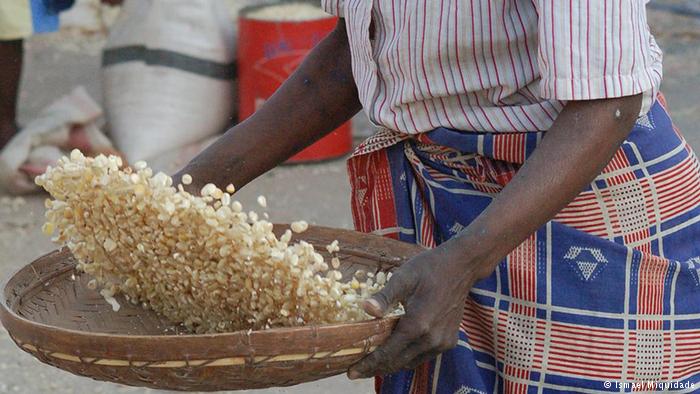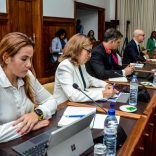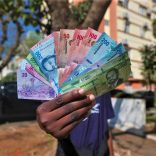Mozambique: Public debt rises 2.7% in Q1
Mozambicans feel the impact of economic crisis in their pockets and at their table

DW (File photo)
In Maputo, there are many citizens who are suffering the effects of the financial crisis sparked by the national debt. Some cannot pay their children’s school fees; others do not have money for rent. There are even some going to bed hungry.
At the largest wholesale market in Mozambique, north of the capital, around eight o’clock in the morning, men, women and children cross the national road in the cold to start another day’s work.
Victória André, who sells meals in a tent, said that since the end of last year she only has, on average, 10 customers per day. Less than a year ago they were 50. “It is difficult, but there is no other way. You just try your luck,” she says. “Bread has risen and now to eat it is very difficult. If you have three children, you have to have money for three loaves of bread.”
Luisa Augusto sells chickens in the same market. With lips chapped from the cold, she complains that her quality of life has fallen in less than a year.
“Since the beginning of this year, things are very different,” she says, noting that before she could buy a 25 kg bag of rice, a fish bar, six kilograms of sugar and five litres of oil. “But not now. Can’t even buy bread. You don’t buy it. You just cook rice and take tea with salad. At dinner, it’s the same thing.”

“Life is terrible”
Júlia Jossefa, 65, lives in the neighbourhood of Costa do Sol in Maputo coast, and also makes a living selling chickens. But as business slowed, her son had to leave college.
“Now we are waiting to see if he gets another job, in order to survive,” she says. “The cost of living has gone up. What we used to buy for 500 [meticais] is now a thousand. I can’t even get a bag of rice for the house. I have to buy in cans, and sometimes I even go to sleep without eating. Life is bad,” Jossefa complains.
Joaquim Francisco, a civil servant, still has enough money to eat, but he says that public debt and fiscal policies are affecting his pocket. “Two or three years ago, I could budget to meet all my needs. Now we are living very differently,” he says.
Doing your life’s arithmetic
Self-employed Benjamin Matsimbe has a workshop in Maxaquene, a poor neighbourhood four kilometres from the capital. With four children, he is forced to reexamine his monthly expenses.
“Actually, things are tough,” he says. “Every month has its challenges, but I have to keep the rice because it has no debt to the stomach.”
Economist Roberto Tibana calls on the government to make some fiscal adjustments, because the future will be even more difficult. “If adjustments are not made, the deficit will increase,” he warns, “and the economic situation will worsen.”













Leave a Reply
Be the First to Comment!
You must be logged in to post a comment.
You must be logged in to post a comment.